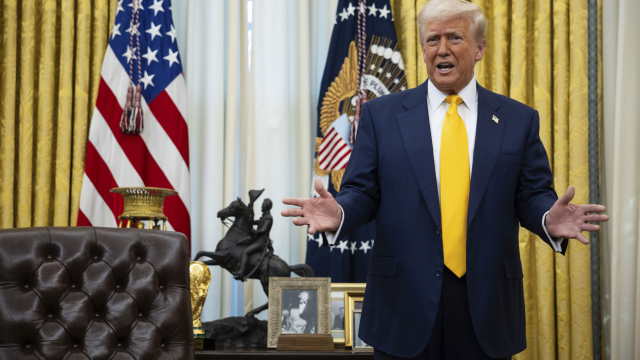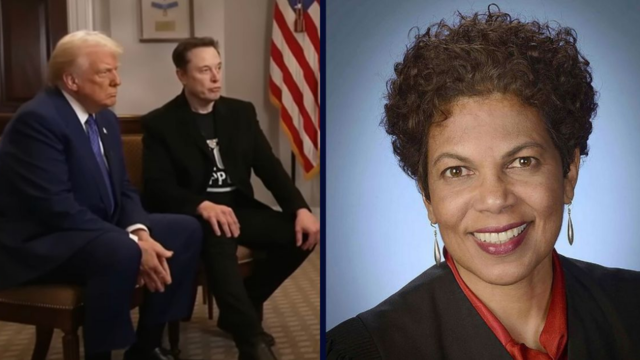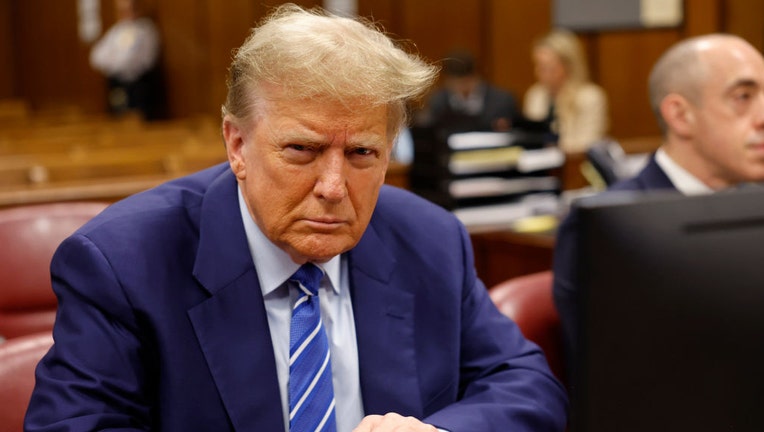UBM- On Friday, a federal judge in Washington, District of Columbia, granted the Trump administration a significant victory by granting permission for the government to further “dismantle” the United States Agency for International Development (USAID).
An earlier temporary restraining order was dissolved by United States District Judge Carl J. Nichols, who was appointed by President Donald Trump. Additionally, a request for a preliminary injunction was denied by the judge in a memorandum ruling that was 26 pages long.
The plaintiffs, which are two government employee unions led by the American Foreign Service Association, which is the sole representative for the United States Foreign Service, filed a lawsuit on February 7 accusing Trump of “unlawful actions” that “exceed presidential authority and usurp legislative authority conferred upon Congress by the Constitution, in violation of the separation of powers.” The lawsuit was filed by the plaintiffs.
Later on that same day, Nichols issued a temporary restraining order that was “limited” in scope. This order prohibited the government from placing employees of USAID on administrative leave and from executing hurried evacuations of such employees from their overseas postings. An application to prevent a 90-day halt on “foreign assistance funding” was denied by the order.
Now, following motions practice on a request for extended relief, additional declarations from interested parties, and “multiple hearings” on the matter, the court has settled on the conclusion that the two unions “have not demonstrated that they or their members will suffer irreparable injury” and that their claims are unlikely to be successful on the merits.
When it comes to comparable efforts by government employees to put a stop to widespread reduction initiatives, the judge virtually takes his cues from an opinion that was issued on Thursday in the same district court.
In that earlier judgment, United States District Judge Christopher Cooper, who was appointed by Barack Obama, came to the conclusion that he did not have the authority to decide whether or not to hear the grievances of unions whose members are being terminated.
The opinion that is held on Friday follows the same path.
Within the context of a conversation that professes to take stock of the merits, Nichols instead looks to the processes that are in place for federal workers to handle labor disputes. Those systems, the court believes, are where the majority of the workers’ concerns should be lodged because they are where the majority of the stress is.
According to the ruling. “Congress has established ‘comprehensive’ statutory schemes that govern the review of employment disputes that arise between the federal government and its civil and foreign service officers,” the opinion states. The Federal Service Labor-Management Relations Statute (FSLMRS) and the Civil Service Reform Act (CSRA) both contain provisions that outline the applicable plan for civil servants.
Nichols provides a detailed explanation of the procedure:
In accordance with those statutes, “labor disputes” involving civil servants, also known as disputes in which unions are involved, are typically resolved by an organization known as the Federal Labor Relations Authority (FLRA). On the other hand, “personnel” disputes, also known as disagreements regarding adverse “personnel action[s]” taken against individual civil servants, are typically resolved by an organization known as the Merit Systems Protection Board (MSPB).
…Despite the fact that the most far-reaching aspects of the plaintiffs’ lawsuit involve “separation-of-powers issues” and “whether a statute or the Constitution has authorized the President to act in a particular way,” the “preliminary” questions that the lawsuit poses are obviously related to employment. For example, the lawsuit raises questions about whether or not the government’s changes to the employment conditions of plaintiffs’ members are within the bounds of public policy.
The judge, on the other hand, acknowledges that the plaintiffs might have a case, but only in the event that their most severe allegations are proven to be true in the future circumstances.
The opinion continues by saying, “[I]t may be the case that, at a high level of generality and in the long run, plaintiffs’ assertions of harm could flow from their constitutional and APA claims regarding the alleged unlawful ‘dismantling’ of USAID.” This is a statement that is made within the course of the opinion. However, as of right now, the organization is still operational, and as a result, the alleged injuries that plaintiffs are relying on in order to obtain injunctive relief are mostly a result of their members’ continuing employment agreements with USAID.
When it comes to the law, the term “irreparable harm” refers to the kind of harmful activity that cannot be remedied by the use of financial resources. In addition, the findings of such harm are of the utmost importance when it comes to injunctive remedy. According to the declaration of the court, none of it is actually taking on here.
In a another part of the ruling, the judge even goes so far as to declare that the initial accusations that were made by the plaintiffs were not entirely accurate.
The ruling continues by saying, “[T]he subsequent submissions made by the government have convinced the Court that the initial assertions of harm made by the plaintiffs were exaggerated.”
A number of allegations for such treatment are singled out by the judge, including one well-known and extensively reported apparent untruth concerning the fact that USAID expatriates who are now abroad are being forced to return to the United States.
The court asserts that the allegation in question is not true at all.
Plaintiffs allege that their members will suffer irreparable loss as a result of what they initially referred to as a “mandatory recall notice” that requires more than 1,400 United States Agency for International Development (USAID) personnel stationed overseas to “repatriate within 30 days,” as stated in the judgment. According to the current record, no United States Agency for International Development (USAID) employee who is stationed overseas has been or will be required to return to the United States over the next thirty days. Rather, United States Agency for International Development (USAID) personnel who are stationed overseas have been given a choice. They will be eligible for agency-funded and planned return travel if they desire to return to the United States within the next thirty days. Also, they will be able to return to the United States.




